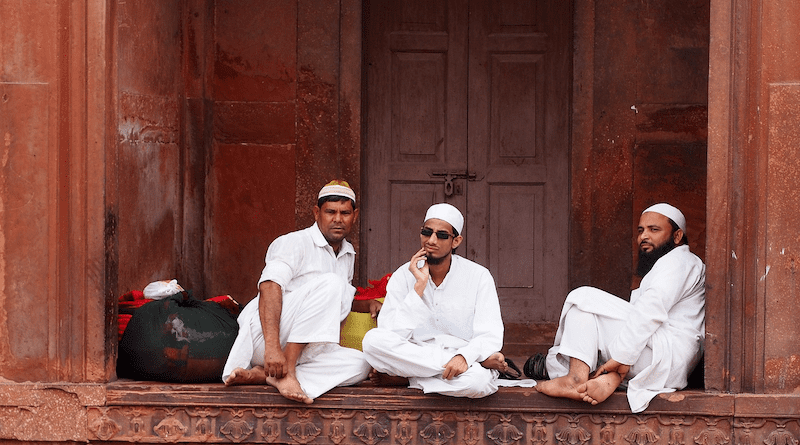Muslims’ Political Prospects In India – OpEd
The swearing-in of Narendra Modi for his third term as prime minister brought to light a glaring issue in Indian politics: the stark underrepresentation of Muslims. Despite an inclusive appearance with diverse castes, tribes, minority religions, and women, the absence of Muslims in Modi’s new cabinet is a troubling sign of deeper systemic issues. This exclusion is not just a reflection of the ruling BJP’s policies but also indicative of a broader trend across India’s political landscape.
In Modi’s cabinet, there were seven women ministers, 10 Dalits, 27 from Other Backward Classes, and five from religious minorities. While Sikhs and Christians found representation, Muslims were notably absent. This exclusion is a significant departure from a core democratic principle: political representation. The situation becomes more alarming when considering the overall decline in Muslim political candidates across all parties in recent elections. In 2014, 320 Muslim candidates were nominated by various parties, but by 2024, this number had plummeted to 94. Even parties outside the BJP, which typically uphold secular democratic values, have shied away from nominating Muslim candidates. This trend is a victory for the BJP-Rashtriya Swayamsevak Sangh’s (RSS) ideological project, which seeks to marginalize Muslims within India’s political sphere. The reluctance of opposition parties to nominate Muslims indicates a broader acceptance of this exclusionary agenda.
The Congress party, for instance, did not nominate a single Muslim candidate in several key states in 2024, a significant drop from previous elections. Major opposition parties like the Congress, Trinamool Congress, Samajwadi Party, Rashtriya Janata Dal, Nationalist Congress Party, and the Communist Party of India (Marxist) together fielded only 43 Muslim candidates in 2024, down from 115 in 2019. This sharp decline highlights a troubling shift in the political landscape. Political scientist and historian Ali Khan Mahmudabad of Ashoka University points out that India has transitioned from marginalizing Muslims to actively excluding them. However, a silver lining emerges in the resilience of Muslim candidates and voters. Despite the drop in nominations, the number of elected Muslim candidates remained steady at 24, disproving the notion that Muslim candidates lack “winnability.”
The BJP’s electoral strategy under Modi has effectively erased Muslim representation, not just within the BJP but also across other political parties. The Congress party’s 2024 manifesto, for instance, did not mention Muslims, reflecting a broader trend of ignoring Muslim concerns. Modi’s rhetoric during the campaign, which included accusations against the Congress for allegedly favoring Muslims at the expense of Hindus, further stoked communal tensions.
The 2024 national elections were marked by a conspicuous silence from opposition parties on issues affecting Muslims. While opposition leaders spoke about unemployment, inflation, and other economic issues, they largely avoided addressing the unprecedented challenges faced by Muslims. This silence is a stark contrast to Modi’s relentless stigmatization of Muslims, whom he and his party portrayed as infiltrators and disloyal citizens. This exclusion has historical roots. Muslims have never been proportionately represented in the Lok Sabha, with an average of only 6% of members being Muslim since 1952. The decline in representation has accelerated since the 1980s, particularly with the rise of the BJP and its Hindu nationalist agenda. By 2024, the number of Muslim MPs had dropped to 24, despite Muslims constituting around 14% of the population.
The BJP’s strategy has redefined Indian electoral politics, proving that a party can win national power while openly marginalizing a significant minority. In 2024, the BJP fielded only one Muslim candidate, who predictably lost. This deliberate exclusion aligns with the RSS’s vision of a Hindu India, where Muslims are second-class citizens. The success of the BJP’s exclusionary politics is evident in its ability to garner support from various communities, including Christians and Dalits, despite their own histories of marginalization. This political strategy has effectively united non-Muslim communities against Muslims, reinforcing the notion of Muslims as the “enemy within.”
The lack of political representation for Muslims is not just a failure of the BJP but also of the entire political system. Non-BJP parties have largely capitulated to the BJP’s agenda, avoiding Muslim candidates out of fear of losing Hindu votes. This reflects a shift from a “political majority,” based on policy and governance, to a “communal majority,” based on religious identity. The declining political courage of non-BJP parties to nominate Muslim candidates reveals a belief that Hindus vote communally, while Muslims are expected to vote secularly. This imbalance further entrenches Muslim marginalization.
The 2024 elections underscore a deepening crisis: Are Muslims in India destined to be perpetual outsiders, or will they be recognized as equal citizens with full political rights? The answer lies not just in numbers but in the willingness of India’s political class to uphold the principles of secular democracy. The fight for Muslim representation is not just about seats in parliament but about affirming the inclusive spirit of India’s democracy.

